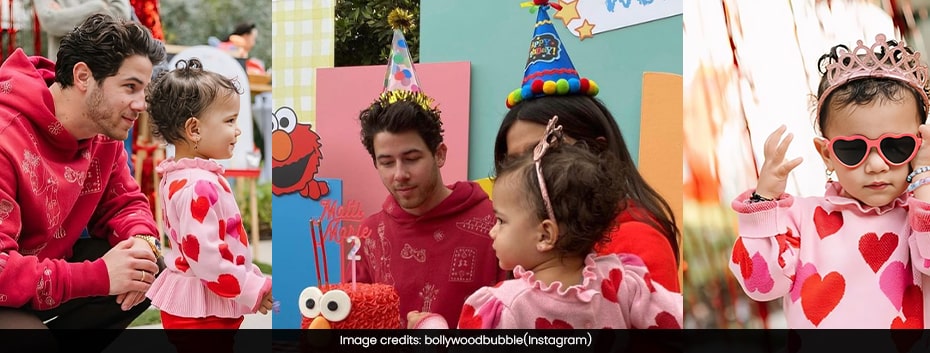![]() English
English
Inspiring Women Social Reformers in India Who Broke The Stereotypes
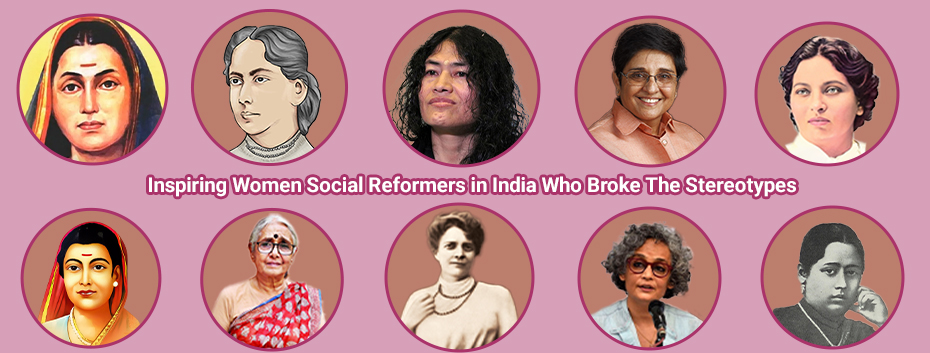
Without the tireless efforts and selfless sacrifices of brave social reformers, our modern India would never have existed. However, taking into consideration that the society of India was under heavy patriarchial influence, the women’s community had practically never had a chance to proactively take part in reforming the country’s status. Regardless of the situation, many women bravely came forward with strong willpower to bring changes to the country, mainly for the betterment of the women’s community. Women of India have always been recognised as the embodiment of resilience, sacrifice, beauty, and intellect. If we look back today, we can proudly say that we, as women, have come a long way, thanks to the ceaseless and selfless sacrifices made by some female social reformers. In this article, we will be delving into some of the top women social reformers in India and explore the applaudable acts they bravely and graciously initiated that added some tremendous contributions to Indian society.
Tarabai Shinde
Tarabai Shinde was a feminist activist born in 1850 who questioned the system of Hinduism, which is also called Sanatana dharma, through her writings in her book ‘Sri Purush Tulana’, published in 1882. She argued in her paper the idea of women being immortal or being in control by men only in Hindu beliefs. She bravely brought forward the reality of how women are being suppressed in society and causing detrimental effects on their daily lives by employing the patriarchal code of behaviour, which has been deeply ingrained among men in the Hindu culture.
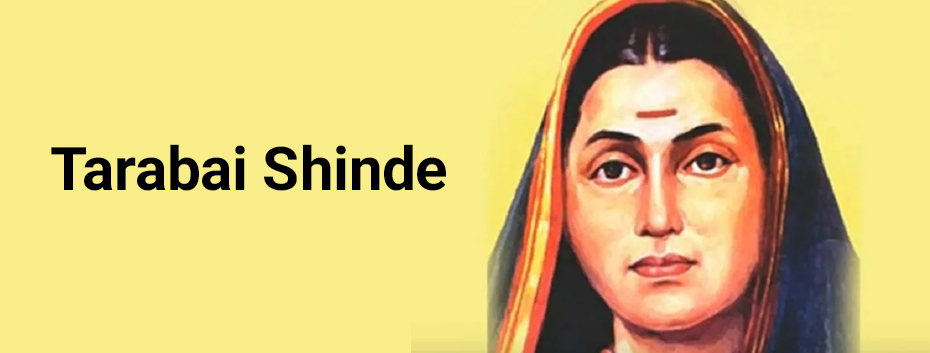
Tarabai Shinde was one of the earliest feminist advocates who addressed the internal issue of the castes and gender discrimination against the women community. As she fought for women’s rights in India, she also co-established the ‘Satyashodhak Samaj’ in 1873, a social reform society, partnered with Savitribai Phule and Jyotirao. Further, Shinde also lent her hand in rehab for widows from the upper caste.
Swarnakumari Devi
Swarnakumari Devi is another inspiring women reformer in India from the 19th century. She was also known as Swarnakumari Ghosal, Swarnakumari Tagore, Srimati Svarna Kumari Devi, and Svarṇakumārī Debī. Born in 1855, Swarnakumari was a Bengali writer, essayist, editor, poet, playwright, novelist, composer, and social worker. She is the sister of Rabindranath Tagore. In 1896, she started the Sakhi Samiti organization to take complete responsibility for aiding underprivileged widows and orphans by providing free education and financial skills. To raise enough funds for such initiatives at the institute, Sakhi Samiti would organize exhibitions.

Having participated in the Indian National Congress every year, in 1929, Swarnakumari Devi was elected to be the president of Vangiya Sahitya Sammelan, a literary society in Kolkata, West Bengal. Despite being a social reformer, Devi became more well-known for her work as an author. She was the first woman from West Bengal to be awarded the Jagattarini Gold Medal from Calcutta University. Swarnakumari went on to receive more recognition for her strive towards promoting scientific training, especially for women, and her success as an author.
Irom Chanu Sharmila
Hailing from the Northeastern state of Manipur, Irom Chanu Sharmila, who is famously called the “Iron Lady of Manipur” or “Mengoubi” is a human rights activist, poet, and political activist. She was born into a poor family in 1972 and barely finished her high school diploma. The killings of 10 Malomites affected her so deeply that she felt obliged to act, which led her to begin her 16 years of hunger strike against the Armed Forces Special Powers Act (AFSPA).
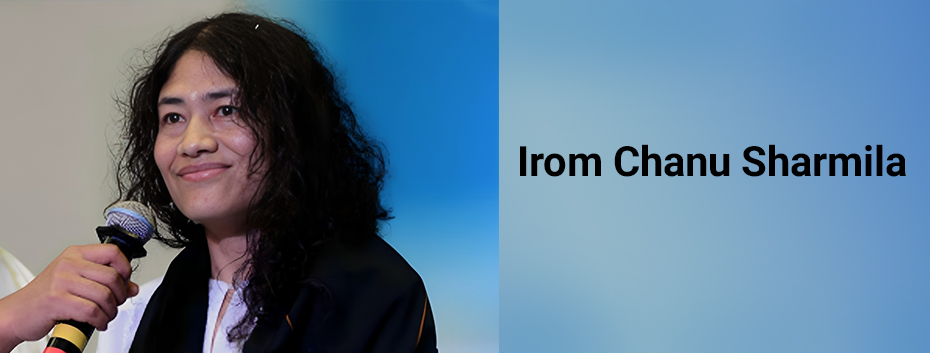
In November 2000, Irom Sharmila began her fight to abolish AFSPA, which led to a massacre of 10 civilians without any warrant. Sharmila’s hunger strike went on to land on the headlines even on global news, inspiring many women across the world to stand for human rights. Her 16 years of fasting came to an end in 2016.
Kiran Bedi
Kiran Bedi is one of the women reformers in India who fought and set the bar high for the women’s community. Born in 1949, Kiran Bedi completed her law degree from Delhi University before she set out to become a social reformer. Later, she earned her PhD degree from the Indian Institute of Technology in Delhi, where her doctoral thesis concentrated on drug abuse and domestic abuse against women. In 1972, Kiran Bedi broke all gender barriers when she became the first lady in India to become an IPS officer. She garnered much attention from the citizens of India when she led the towing away of a car belonging to the office of the Prime Minister of India. Through this particular event, Kiran Bedi earned her nickname ‘Crane Bedi.’
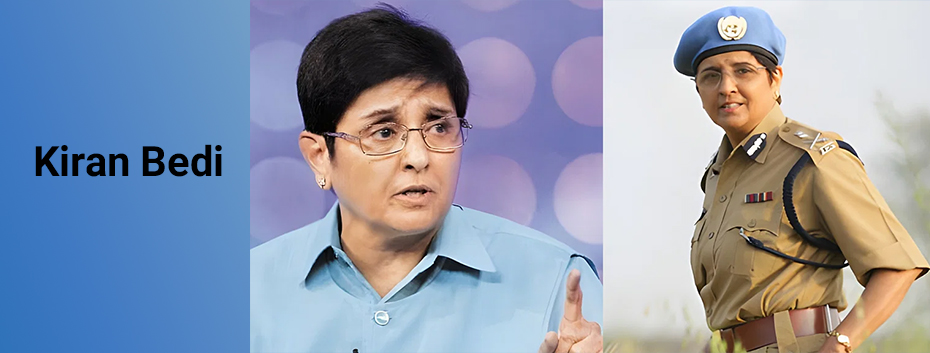
Throughout her tenure as an IPS officer, Kiran Bedi brought many changes in India. Such as, the Tihar jail was transformed into a standard prison, where dangerous convicts were provided separate barracks to prevent any criminal activities. She also established vocational training for the prisoners to create employment openings upon their release. Kiran also participated in Social Services with several NGOs and other women reformers. One such example is her involvement in Navjyoti India Foundation, which aimed to provide residential treatment to junkies. With several other reforms initiated and launched by Kiran Bedi, she remains one of the most respected women reformers in India to this day.
Savitribai Phule
Savitribai Phule was born in January 1831 and hails from Naigaon village in Maharashtra. She married at the tender age of just 9 years to Jyoti Rao Phule, who was 13 years old at the time. Savitribai was one of the cardinal social reformers in India who challenged the status of women and fought to abolish the caste system during British rule in India. Savitribai’s resolution towards challenging the social and cultural system of India was highly influenced growing up as she struggled a lot to receive equal education and passionately fought against the prejudices inclined towards the caste system in India.
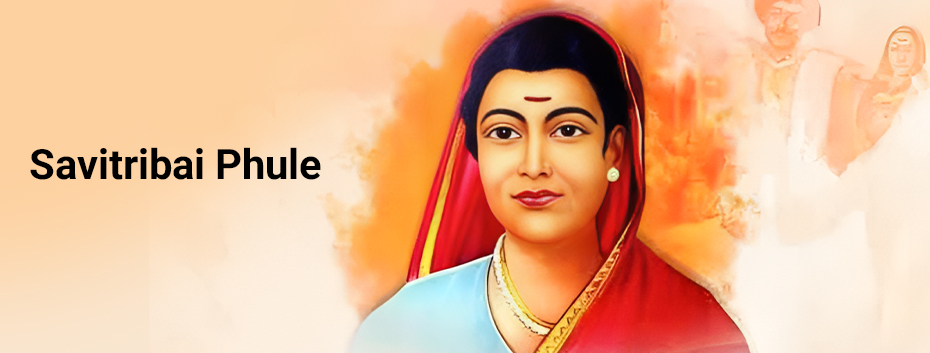
Savitribai Phule firmly advocated that education should be used as a tool for combating social evils, and thus, every girl in a family must have the right to education. In 1848, Savitribai Phule, along with her husband, Jyoti Rao Phule, established the first female school in India, and by 1851, they had already established 3 other girls’ schools in Pune. The three schools offered education in English in addition to scholarship schemes. Later in her days, Savitribai Phule also challenged against child marriage, which was a great success in this cultural reform. Until the death of Savitribai Phule in 1897, she and her husband continued to fight against the abolition of gender and caste discrimination and even went on to launch ‘Balhatya Pratibandhak Griha,’ an open care centre for the delivery of rape victims and girl infanticide.
Ramabai Ranade
Ramabai Ranade was another inspiring woman reformer from the Sangli district in Maharashtra who fought and sacrificed for the dignity of gender equality in India. Ironically, her father was against her challenge to bring reformation for women since it was considered taboo for girls to receive education at that period. It was her husband, Mahadev Govind Ranade, who actively supported her ideal and even devoted himself to teaching her. Through the support and encouragement she received, she established several social reformations despite her humble background.
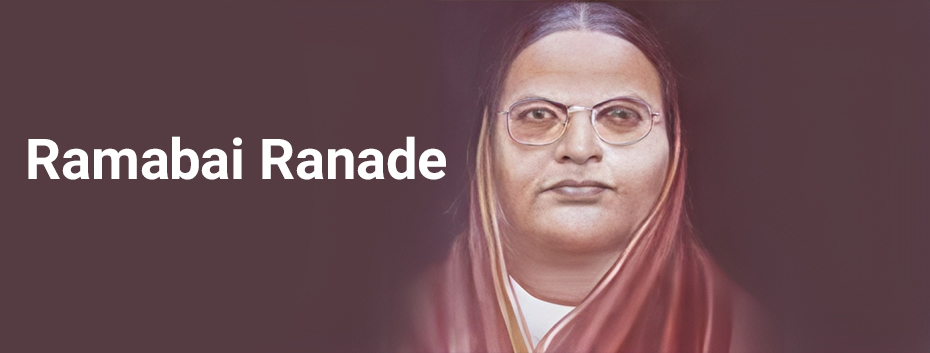
Ramabai Ranade launched the Bharat Mahila Parishad, which was a major organization established for women by a woman to promote the right to education for girls, eradicate the purdah system, and improve the overall socio-economic and political status of women in India. She would often visit the detention cell for women to impart knowledge about self-esteem. She even set up a relief camp for poverty-stricken people and became the leader of Seva Sadan, an institution for women where they were taught various life skills. Through her selfless efforts and undying sacrifices throughout her lifetime, Ramabai Ranade brought many social reforms to the women of India.
Aruna Roy
Aruna Roy is a social activist, union organizer, professor, and former civil servant from Chennai. She founded the Mazdoor Kisan Shakti Sangathan in 1990 and serves as president of the National Federation of Indian Women. She is prominently applauded for fighting against corruption and her promotion of government transparency. Growing up, Aruna Roy was deeply influenced by her parents, who instilled the importance of social responsibility and the essence of open-mindedness. After completing her studies at Indraprastha College in Delhi and Aurobindo Ashram in Pondicherry, she began to teach, however, eventually she realised that her calling was different. She wanted to become a public servant.
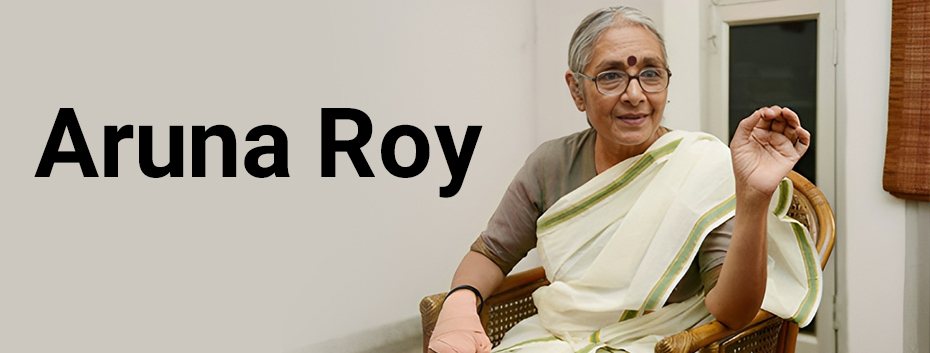
After passing the IAS exam in 1967, she became a well-known leader of Mazdoor Kisan Shakti Sangathan (MKSS), which is a social and central organisation for the promotion of agricultural workers. She also played a crucial part in the establishment of the Right to Information Act (RTI) in 2005. She has been conferred with several awards for her contribution towards the reformation of Indian society, such as the Ramon Magsaysay Award for Community Leadership and the Lal Bahadur Shastri National Award for Excellence in Public Administration, Academia, and Management.
Sister Nivedita
Sister Nivedita was a female social reformer in India and a political activist born in October 1867. She was born into an Irish Christian family under the name Margaret Elizabeth Noble, who later embraced her new name as ‘Nivedita’ given by Swami Vivekanand. During her stay in India, she was very vocal about British rule and actively supported the civil resistance with fellow Indians. She established a school with the aim of delivering quality education for the women in India, and she would even visit from house to house to impart knowledge to girls, adult women, and even widows about the advantages of education.
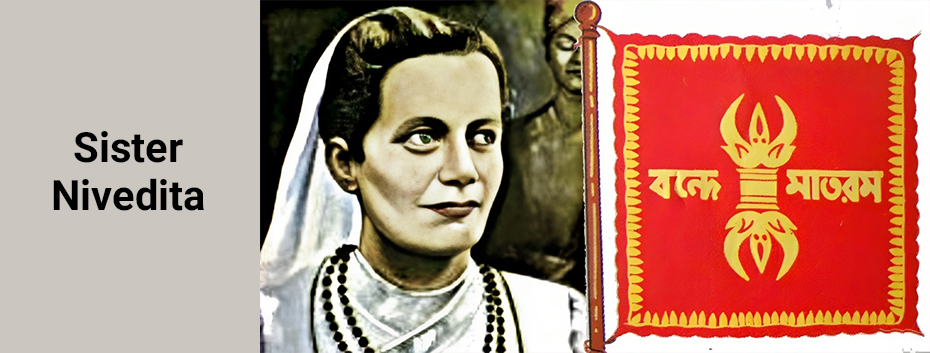
Sister Nivedita would sacrifice her earnings and invest in orations and writings to promote the upliftment of Indian women regardless of the presence of the caste system. Nivedita selflessly contributed when the epidemic hit the country and even helped design one of the versions of the Indian flag. She firmly advocated social reforms and helped promote the art and culture of the country. Sister Nivedita was a selfless feminist who advocated for gender equality in India despite the prevalence of the caste system, paving the way for the modern women generation today.
Arundhati Roy
Arundhati Roy is a contemporary author, political activist, and actress who actively stands for the causes of human rights and engages in the promotion of environmental rights. She was born in November 1961 in Shillong, Meghalaya, and is best known for her award-winning book “The God of Small Things”, which was published in 1997. This book became the best-selling novel by an Indian writer, leading her to win many prestigious accolades, including the Man Booker Prize for Fiction.
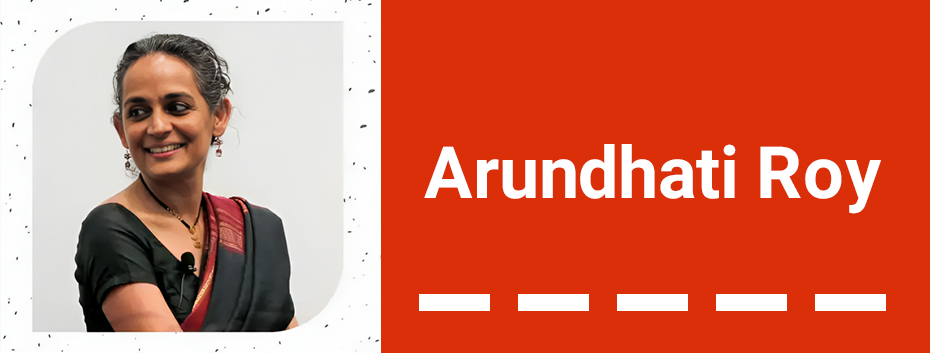
After the release of her book in 1997, Arundhati Roy paid more attention to political activism and facts. She publicly stood against the US foreign policy, globalization, and colonialism. She refutes the statements made by Americans that the US is a free and peaceful nation by listing all the 19 Third World nations, including China, as the countries that the USA has waged war against and attacked since World War II, in addition to earlier US backing for the Northern Alliance and the Taliban movement. Furthermore, Arundhati stands against the nuclear weapons code by the Indian government along with economic development. Despite her few controversial statements made so far, Arundhati Roy will remain one of the prominent female activists who is known for her blunt advocacy.
Chandramukhi Basu
Chandramukhi Basu hails from Dehradun and was born in 1860. She was another prominent social reformer who made a significant impact on the social and cultural development of India. Chandramukhi was the first woman to graduate during the British colonial rule in India, she also paved the way for women’s equality, which was highly prevalent during that time in the country. She fought and promoted rigorously with the administration of colleges for the right to education for girls. She was also the first woman to achieve a master’s degree during that period. Her master’s certificate was received from the University of Calcutta. After taking a job as a teacher at Bethune College in 1886, she became the first female to become a college president, which further solidified her reputation as an influential figure. Thanks to her relentless stand against discrimination against women and an advocate for equal education, Chandramukhi Basu is still remembered as an inspiring reformer among female students to this day.
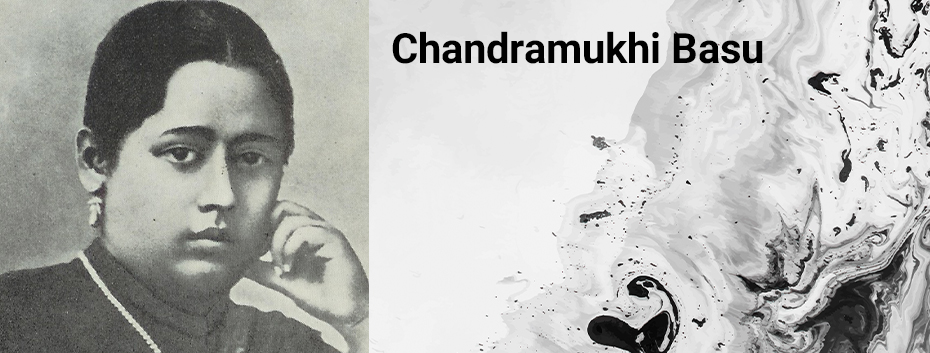
Usha Mehta
Born in March 1920, Usha Mehta was a female freedom fighter in India and a dedicated follower of Gandhi. Usha took part in one of the protest marches of the Simon Commission in 1928 at the tender age of only 8 years. As a young girl, when she had the privilege to meet Mahatma Gandhi for the first time, she received much inspiration from him, which motivated her to start wearing khadi for a long period. She enrolled in a law school but ultimately dropped out in 1942 to get involved in the Quit India Movement. Usha Mehta was apprehended by the police and locked in Yeravda Jail due to her connections to Congress Radio or Azad Radio, which was an undercover radio station. Veteran socialist socialist political activist, Ram Manohar Lohia, assisted in her detention.
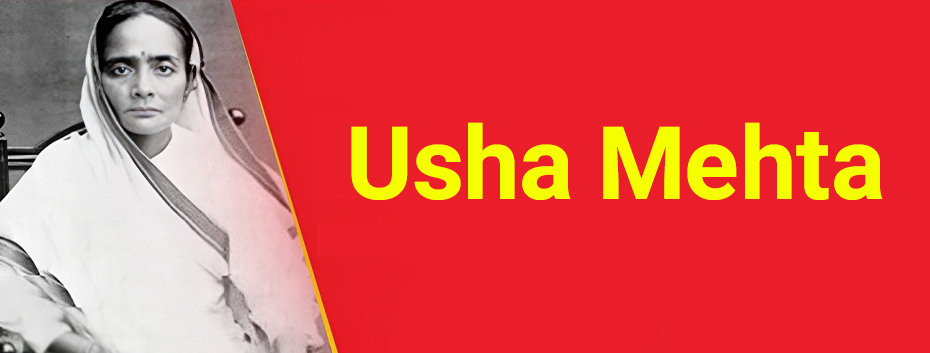
After Morarji Desai, who was the home minister of the interim government at that time, released an order to free her, Usha Mehta became the first political detainee to be discharged in Bombay. Even after India gained independence, Usha continued to promote the principles of Gandhi and in 1998, she was even rewarded the Padma Vibhushan. She resumed her studies post-independence and later acquired a PhD degree from the University of Bombay. Having grown up in the ideology and beliefs of Gandhi, she authored several books and essays in English and Gujarati.
Medha Patkar
Medha Patkar is one of the recognised female social reformers in India. She was born in December 1954 and is a founding associate of the National Alliance of People’s Movements as well as the Narmada Bachao Andolan. Since 1992, the Jeevanshala Schools have been operated by Narmada Bachao Andolan (NBA), and through this campaign, Medha Patkar has been involved in a number of precincts, including health, employment security, the right to food and Public Distribution System, rehabilitation, and environmental preservation.
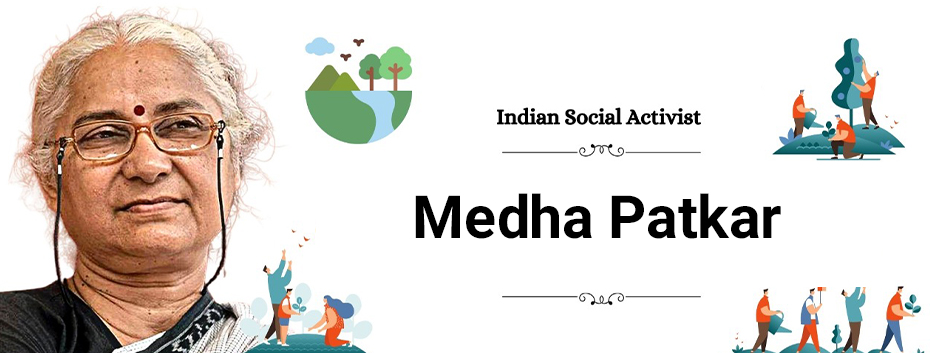
Since 1992, Jeevanshala Schools has been operated under the Narmada Bachao Andolan (NBA), and through this movement, Medha Patkar works in different sectors like health, right to food and PDS, rehabilitation, employment guarantee, and protection of the environment. In the same year, Medha founded the NAPM (National Alliance of People’s Movement), which is an umbrella organization that operates for various civil organisations and individuals with similar objectives. She also co-founded more organizations in the later years, including Ghar Bachao Ghar Banao Andolan and Strong People’s Movement, leaving a huge inspiration not only for women but for the entire citizens of the country.
Pramila Nesargi
Having been born into a family of freedom fighters, the life of Pramila Nesargi had a major influence because of her parents since birth. Born in March 1938, Pramila Nesargi is a women’s rights reformer, educationist, and maverick lawyer, who strongly advocates the Uniform Civil Code (UCC) to defend the rights of women, improving the current state of Indian women. Because of her active contribution as the Chairman of the Bar Council of India, Pramila Nesargi has made selfless contributions to reforming the status of women in India as well as in many other sensitive issues, including sexual violence, child labour, domestic violence, sexual harassment in the workplace, housing, and rent control, the dilemma of convicts, and many more.
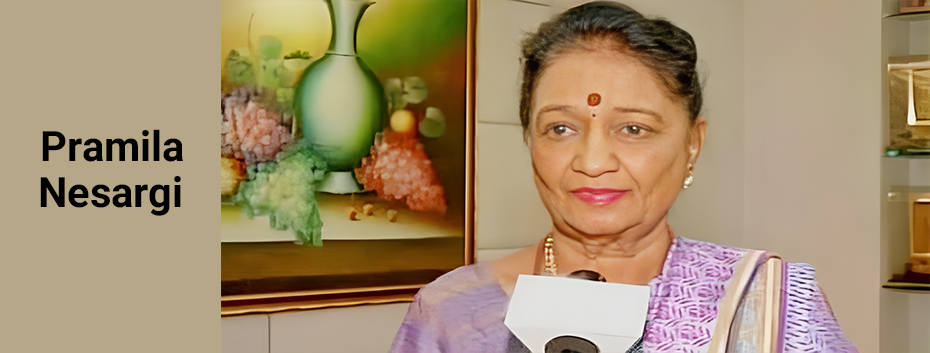
Pramila has also lent her hand in establishing several independent sectors and was a part of the dictionary board for translating English-Kannada languages. Additionally, Pramila Nesargi was the first female in 50 years to be selected as the president of the Karnataka Bar Council. With the primary purpose of enhancing the capabilities of all females and children with special needs, she leads the Samragni Swa Udyog Trust. This Indian attorney also advocated for the revision of many laws that discriminate against women in the context of religion.
Amala Akkineni
Actress turned activist, the noble contributions that Amala Akkineni has extended to the country are what made us pick her in our 14th list of inspiring women social reformers in India. Apart from being a former actress, she is also a Bharatanatyam dancer and a coach to beginner film students. She was born to a Bengali father and an Irish mother. From a young age, Amala was taught about the essence of self-governing and being cultured. She learned to be self-sufficient and savagely independent from her father, who is a fervent disciple of Mahatma Gandhi.
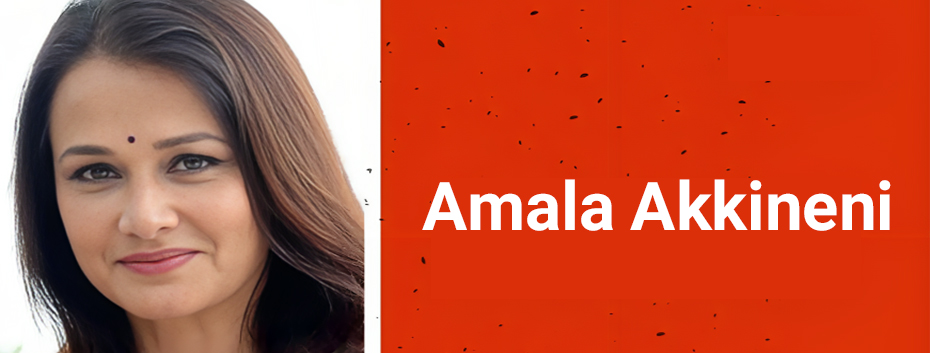
In addition, Amala actively advocates the benefit of vegetarianism and is one of the co-founders of The Blue Cross of Hyderabad, a non-governmental organisation that operates to protect animal rights and promote animal care in India. The organisation has supported over 553,000+ animals so far, dealing with birth control, vaccines for rabies, adoptions, animal rescue, pet care, and so on. After withdrawing from the star-studded lifestyle and dedicating her entire life towards reforming the social status of the country, Amala Akkineni continues to inspire many of us even today.
Laxmi Aggarwal
Laxmi Aggarwal is one of the modern social reformers at present in India who has courageously fought through some traumatic events in life and is an advocate for women who have gone through similar situations. Born in 1990, Laxmi is known for her bravery after surviving a horrific acid attack at the young age of 15 years, when a one-sided lover splashed acid on her face. Due to the event, she lost her eyesight and permanently damaged her physical appearance. Despite all the obstacles against her, her unwavering dedication towards reforming the fate of fellow women has earned her the exemplar of acid attack survivors in India.

In 2006, after the horrific incident, Laxmi registered a PIL (Public Interest Litigation) to reform the decrees for acid attacks and the limitation or outright prohibition of acid sales on the open market. In addition, the PIL ordered to compensate the victim as well. Laxmi began her hunger strike with the demand that survivors or victims of acid attacks receive justice and rehabilitation as soon as possible. She was actively involved in the establishment of the Chhanv Foundation, which is a non-governmental organization to supports acid-attack survivors with legal and medical aid, counselling, rehabs, and employment. She also launched a special cafe called the Sheroes Hangout, which is operated by the victims of acid attacks. Through her horrific incident, Laxmi Aggarwal has courageously stood up to aid hundreds and thousands of victims like her, which is an immense inspiration for the rest of us.
Conclusion
The list of 15 women social reformers we have listed above in this article is just a tiny percentage among the countless other women who have strived to reform the social and cultural conditions in India over several decades. They have selflessly committed to stand against gender discrimination, which the women in India have struggled through for many centuries. Although we, as women, still face discrimination in the current society, we have come a long way thanks to these brave ladies. They have fought for us, enduring all the pains and struggles, challenging the social norms, and promoting the right to education. They have proven to us that a change can start with you and us if we are determined and courageous enough. As we honour the triumphs of these women, we need to realise the constant challenges that continue to this day and strive to create a society where inclusivity and unbiasedness exist for all individuals, regardless of skin colour, gender identity, and where they are from.



